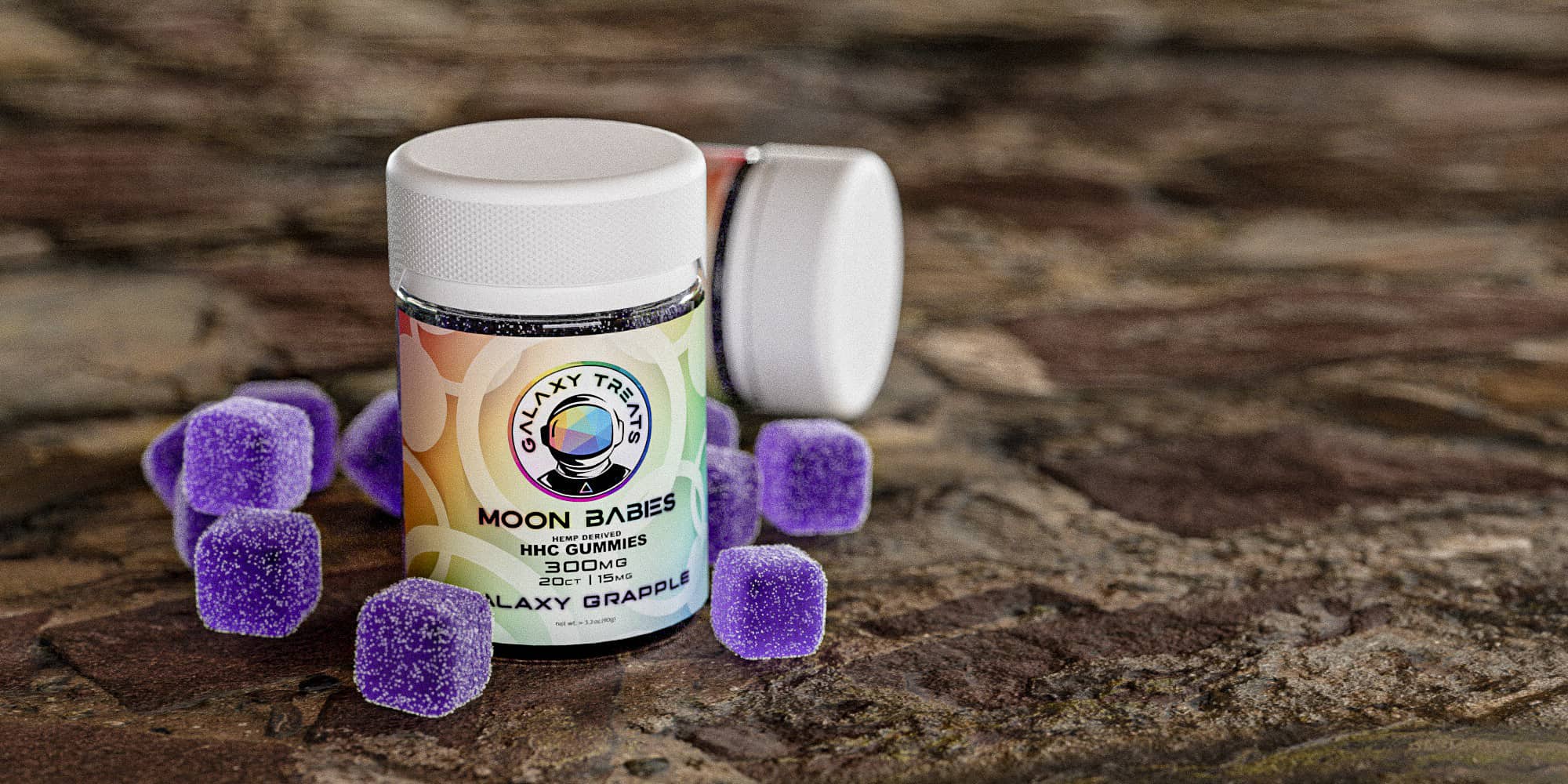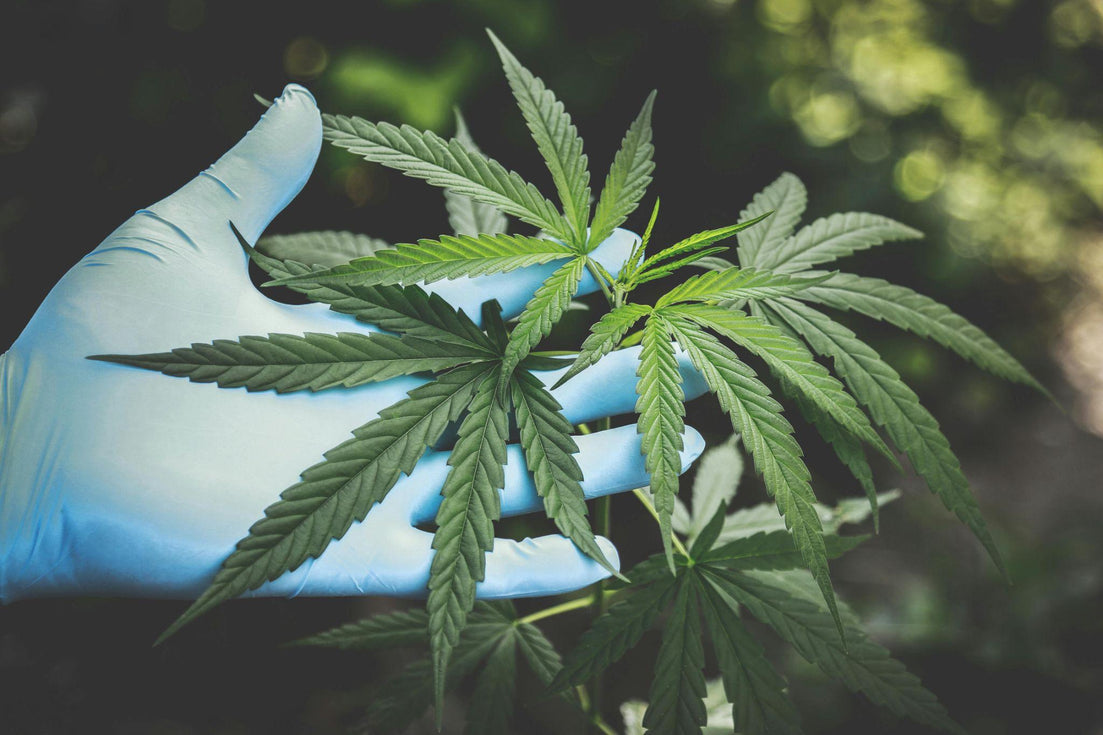Your cart is currently empty.

Comparing HHC vs Delta 9 can feel like navigating a maze of chemical structures, effects, and legal landscapes. These two hemp cannabinoids have been making waves in the cannabis industry.
Hemp aficionados might already be familiar with Delta 9 due to its popularity and widespread use. But recently, another cannabinoid - HHC has emerged as an intriguing alternative.
Comparing HHC and Delta 9, which is the better option? Is one superior to the other?
In our comprehensive guide on HHC vs Delta 9, we delve into their origins, chemistry, effects and legality to help you understand each one better. Let's dive right in!
Unraveling the Intricacies of HHC and Delta 9
As we delve deeper into the world of hemp cannabinoids, two notable contenders come to the forefront: Hexahydrocannabinol (HHC) and Delta-9-tetrahydrocannabinol (Delta 9 THC). But what sets these two apart in a field with over 100 identified compounds?
The Genesis of HHC and Delta 9
HHC originates from hemp plants, although it may not be as abundant as other compounds like CBD or THC. Despite its rarity, HHC's special characteristics make it a captivating option for those seeking alternative cannabis experiences.
Delta 9 THC, on the other hand, is commonly associated with marijuana use but can also be found in hemp plants. Its claim to fame lies in being the most popular cannabinoid due to its potent psychoactive effects.
To truly understand the differences between these delta forms and HHC products, one must explore their chemical structure and their impact on human physiology.
A Tale Told by Atoms: Comparing HHC vs Delta 9
Looking beyond surface-level disparities, it becomes evident that these two cannabinoids diverge significantly at a molecular level. The arrangement of atoms within each compound determines how they interact with our body's endocannabinoid system, which in turn influences their overall effects.
HHC's unique structure results in less intense binding to CB1 receptors, primarily located in brain cells, compared to Delta-9. This leads to similar yet milder psychotropic effects when compared to consuming high-potency delta nine products.
An Experiential Dichotomy: Mental Clarity With HHC Vs Psychoactivity With Delta Nine
The divergence between these two compounds extends beyond their molecular makeup and into the realm of user experience post-consumption. While both may induce feelings of euphoria or relaxation typically associated with cannabis use, cognitive clarity becomes a distinguishing factor.
People love HHC because it boosts mental clarity, a perk you don't usually get from traditional delta nine products. These often latch onto CB1 receptors, leading to more noticeable effects.
Diving into the world of hemp cannabinoids, Hexahydrocannabinol (HHC) and Delta-9-tetrahydrocannabinol (Delta 9 THC) stand out in a crowd of over 100 compounds. HHC, though less abundant than others like CBD or THC, offers unique characteristics that make it an appealing choice for those seeking alternative cannabis
Unraveling the Chemistry of HHC and Delta 9
When it comes to understanding cannabinoids like Hexahydrocannabinol (HHC) and Delta-9-tetrahydrocannabinol (Delta 9 THC), their distinct characteristics are rooted in their unique molecular structures. These two compounds, though similar in some ways, have chemical compositions that shape their properties and effects.
The Unique Structure of HHC
HHC's structure is distinctive due to its lack of double bonds. This characteristic arises from a process known as hydrogenation where extra hydrogen atoms join the carbon chain. The introduction of these additional atoms lends stability to HHC, making it less prone to degradation when exposed to air or light compared with other cannabinoids.
This structural feature not only boosts shelf life but also influences how our bodies interact with this compound, thus shaping its effect profile substantially.
Distinguishing Traits Of Delta 9 THC
In contrast, delta 9 THC carries a signature double bond on the ninth carbon atom within its chain. This single trait greatly impacts how this cannabinoid engages with our body’s endocannabinoid system, particularly interacting strongly with CB1 receptors located mainly in our brain.
This interaction triggers psychoactive effects often associated with cannabis use, setting delta nine apart from non-psychoactive cannabinoids such as CBD or even closely related variants like delta eight THC.
The key difference between these lies not just in effect profiles but also legality. While Hemp-derived products containing less than 0.03% total delta-nine Tetrahydrocannabinoil are considered federally legal under provisions of the Agricultural Improvement Act, also known as the '2018 Farm Bill', the same cannot be said for all states and territories. Certain locales have passed legislation specifically prohibiting the sale, possession, and consumption of various forms of Deltas, including Eight and Nine analogs. However, currently, no known jurisdictions explicitly ban the production or distribution of HH-Canna-based items.
So, if your residing state imposes restrictions against purchasing traditional Cannabis Sativa, hemp-derived products may provide a legal alternative.
Decoding the world of cannabinoids like HHC and Delta 9 THC boils down to their unique molecular structures. HHC's stability, thanks to a lack of double bonds, enhances its shelf life and influences our body interactions. On the flip side, Delta 9 THC’s distinct double bond leads to psychoactive effects when interacting with brain-based CB1 receptors. The
Comparing the Effects of HHC and Delta 9: A Deep Dive into Psychoactive Cannabinoids
In the ever-evolving world of cannabinoids, two names often come up in conversation - Hexahydrocannabinol (HHC) and delta-9-tetrahydrocannabinol (Delta 9 THC). Both share similar effects but offer different experiences. What does this mean for those who consume these compounds? Let's break it down.
The Lowdown on HHC’s Effects
Haven't heard about HHC before? You're not alone. This new kid on the cannabinoid block is derived from hemp plants, which means it complies with FDA regulations set for CBD products. This gives it a legal edge over other more regulated cannabinoids.
User experiences with HHC are varied but lean towards feelings of relaxation and calmness. Some folks even report increased focus or creativity. Unlike its stronger counterparts like some forms of THC, using HHC doesn’t typically lead to paranoia or anxiety - a big plus for those seeking milder vibes.
Digging Deeper into Delta 9 THC
Now let's talk about Delta 9 THC – a well-known player in marijuana strains due to its potent psychoactive effects that give you that 'high' feeling sought after by many recreational cannabis enthusiasts.
This high can bring euphoria, altered sensory perception, relaxation along with potential side effects such as dry mouth or temporary memory impairment. However, unlike HCC where things stay chillax, too much Delta 9 could induce anxiety or paranoia, so caution is advised.
Pitting One Against The Other: Comparing These Two Cannabinoids
If we start comparing delta variants against HHC’s effects, we find striking differences despite their similarities. While both cause sensations like relaxation and altered consciousness, they differ significantly when considering potency and legality across states.
What sets them apart is their strength. Both give you a buzz, but Delta 9 usually packs more punch.
Unraveling the effects of HHC and Delta 9 THC reveals a world of differences. HHC, a newcomer in the cannabinoid scene, offers chill vibes with its milder relaxing effect and no paranoia or anxiety side-effects - making it legal to boot. On the flip side, Delta 9 THC is like your seasoned pro offering potent 'highs
Understanding the Legality and Regulation of HHC and Delta 9
The legal landscape for cannabinoids, specifically HHC (hexahydrocannabinol) and delta 9 THC, is constantly shifting. These regulations can be complex to navigate as they vary between federal laws and local jurisdictions.
Federal vs State Laws: A Complex Dance
Nationally, both HHC and delta 9 THC are federally legal in the United States provided they come from hemp. This provision stems from the Agricultural Improvement Act of 2018, more colloquially known as the Farm Bill. According to this legislation, hemp-derived products containing less than 0.3% delta-9 THC on a dry weight basis fall within legal boundaries.
However, state laws often have their own tune to dance to, which sometimes clashes with federal legality. The divergence between these two levels of law leads to significant discrepancies across different states when it comes down to cannabinoid use.
Hemp-Derived vs Marijuana-Derived Cannabinoids: What's Legal?
A key point in understanding cannabinoid regulation lies in whether a product is derived from marijuana or hemp plants—both members of the Cannabis sativa species but differentiated by their varying levels of THC content.
Products derived from Hemp typically contain high concentrations of cannabidiol (CBD), but low amounts (0.3%) of such compounds.
Federally Legal Yet Intricately Regulated
In light of the Farm Bill enactment, the DEA (Drug Enforcement Administration) no longer regulates hemp-derived cannabinoids, granting them 'hhc legal' status at the federal level. However, specific guidelines pertaining to each substance still exist based on its chemical structure and potential psychoactive effects.
In terms of 'delta-9', any extract inclusive of this compound must not exceed the stipulated limit, else face stringent penalties upon violation.
Differing Local Laws:
But it doesn't stop at national laws. Each state has its own particular system of regulations in regards to marijuana.
When it comes to the legalities of HHC and Delta 9, you're dancing with a complex partner. Federal laws say 'yes' if they come from hemp, thanks to the Farm Bill of 2018. But state laws sometimes step on those toes with their own rules. Remember, it's all about where your cannabinoids are coming from - marijuana or
Unraveling the Production Process for HHC and Delta 9
The production of HHC and Delta-9 THC, two distinct cannabinoids, is a captivating process that starts with hemp but diverges along the way. Both are derived from hemp, but their paths to maturation diverge significantly.
A Deep Dive into HHC's Creation
Have you ever wondered how HHC is produced? It all begins with Cannabigerolic Acid (CBGA), a crucial molecule found in cannabis plants. This raw material transforms into Tetrahydrocannabinolic Acid (THCA) through enzymatic processes, and then undergoes heat-induced decarboxylation to give birth to Delta 9 THC.
To produce HHC, the newly formed Delta 9 THC undergoes further transformation using hydrogen under specific conditions. Unlike cannabinoids like CBD or CBG, which can be directly extracted from mature hemp plants, HHC requires these additional steps because it is not naturally abundant within the plant itself.
Tracing the Steps of Delta 9 THC Formation
In contrast to Delta 9 THC, the production process stops at the decarboxylation stage, where THCA converts into active delta-9-tetrahydrocannabinol after exposure to light or heat over time. The carboxyl group is taken away from THCA in a chemical reaction, transforming it into the psychoactive form known as Delta-9-THC.
This cannabinoid then undergoes isolation and purification processes, such as CO2 extraction or ethanol extraction, depending on the desired purity levels and other manufacturing considerations.
Parsing Differences between Processing Methods
An intriguing distinction between the processing methods for these two cannabinoids lies in their origins. While delta-8-tetrahydrocannabivarin (Delta-8-TV), another minor therapeutic cannabinoid, could serve as a starting point for synthesizing hexahydro-cannabinols (HCCs), the creation of psychoactive compounds like Deltanin (TMN)-based products typically involves a direct conversion route that begins with cannabigerolic acid (CBGA).
So, to sum it all up,
FAQs in Relation to Hhc vs Delta 9
What is stronger: HHC or Delta 9?
Strength varies between individuals. While both HHC and Delta 9 THC produce psychoactive effects, many users report that HHC offers a more clear-headed experience.
Is HHC the closest thing to Delta 9?
HHC shares similar properties with Delta 9 but has its unique characteristics. It's close, yet different due to its molecular structure and effect profile.
Is HHC better than Delta 9?
"Better" depends on personal preference. Some prefer the mental clarity of HHC while others favor the intense high of Delta 9. Both have their benefits and potential drawbacks.
How is HHC different from Delta 9?
The main difference lies in their chemical structures, which impact how they interact with our bodies' cannabinoid receptors - leading to distinct experiences for each user.
Conclusion
So, you've dived deep into the world of hemp cannabinoids and discovered the unique properties of HHC and Delta 9. You've seen how they're derived from our green friend, the cannabis plant.
You've also explored their molecular structures - no double bonds for HHC and a classic setup for Delta 9.
Weighing up HHC vs Delta 9, you now know that while both offer similar effects, your experience will be different with each one.
And legality? Both are federally legal in the US if they come from hemp but always check local laws just to make sure!
The production process was an eye-opener too! From plant to product is quite a journey!
If this peek into cannabinoids has piqued your interest further about Cannabis, CBD or even other deltas like Delta 8, we invite you to explore more at Weed Republic. Here's where curiosity meets knowledge on all things related to weed culture. Dive deeper into this fascinating world with us today!



